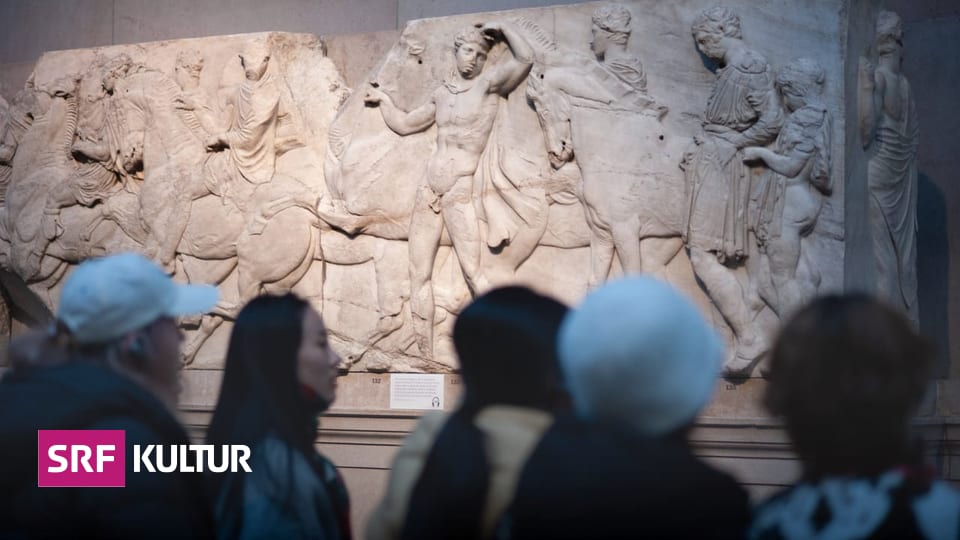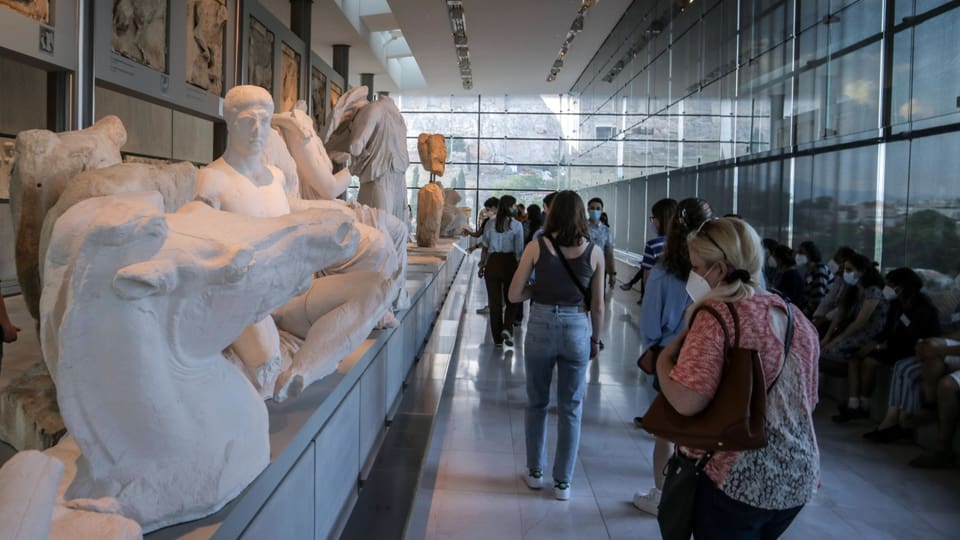The Greek Minister of Culture offers a barter agreement to the British Museum. A new way out of the impasse?
Controversial material: Parthenon Frieze – A series of ancient marble sculptures from the Parthenon Temple on the Acropolis, part of which is in the British Museum. Athens demands it back, London won't. The ancient reliefs, also known as the “Elgin Marbles,” depict scenes from Greek mythology. The then British Ambassador to the Ottoman Empire, Lord Elgin, removed the marble frieze from the Acropolis in 1801 and sold it to the British government.
Fronts: Hardened. The Greeks and the British have been in dispute for 200 years over the Parthenon frieze. The conflict escalated recently when British Prime Minister Rishi Sunak canceled a meeting with Greek Prime Minister Kyriakos Mitsotakis at short notice. In an interview with the BBC, he insisted that the artefacts were from the Acropolis of Athens, to which the British Prime Minister responded angrily. After all, marble sculptures are maintained for generations.
Attempt to clarify: A barter trade. British Museum returns Parthenon friezes – In return, Great Britain will receive important cultural property on permanent loan from Greece. Greek Culture Minister Lina Mendoni has promised to adequately fill the “gaps” in the British Museum if the ancient sculptures are returned to Athens. According to a trained archaeologist, these loans will prove to be real crowd pullers. At least Mendoni's proposal brings new momentum to a debate that has stalled for years. Until now, Great Britain blocked everything.
Offer: serious. That the Greeks were willing to engage in a barter exchange shows the central importance of connecting the country to the Parthenon frieze, says Felix Ullmann. A constitutional law professor handled the marble sculpture controversy. According to Ullman, the promised loan assignments would otherwise certainly not leave Greece. “I think it's a serious effort by Greece to find a solution here,” the expert said.
Chances of Winning: Better than expected. Felix Ullmann thinks the Greek proposal is brilliant. Nor is he sure whether Britain's position is as entrenched as it was 20 years ago. Public pressure on the UK has increased significantly recently. “I can only imagine that there are things going on behind the scenes that we still don't know much about, but it gives me hope that we can find a solution to this dispute.” At least the fear of emptying the relevant halls of this important museum will be dispelled by the British.
Alternatives: In principle, Ullman says, every solution is conceivable. If you are of the opinion that the decision will be acceptable to both parties. For example, there will be a very small prototype between Zurich and St. Gallen called the St. Gallen Globe. In this case, not the original, but a very valuable copy was returned to St. Gallen with many valuable writings. However, positions between Great Britain and Greece have become more difficult, making negotiations difficult for both sides.

“Friend of animals everywhere. Web guru. Organizer. Food geek. Amateur tv fanatic. Coffee trailblazer. Alcohol junkie.”








More Stories
Back to Australia? That is why the country can participate
Poland becomes richer than Great Britain – Euractive DE
Baerbach leaves for Australia – signal to China